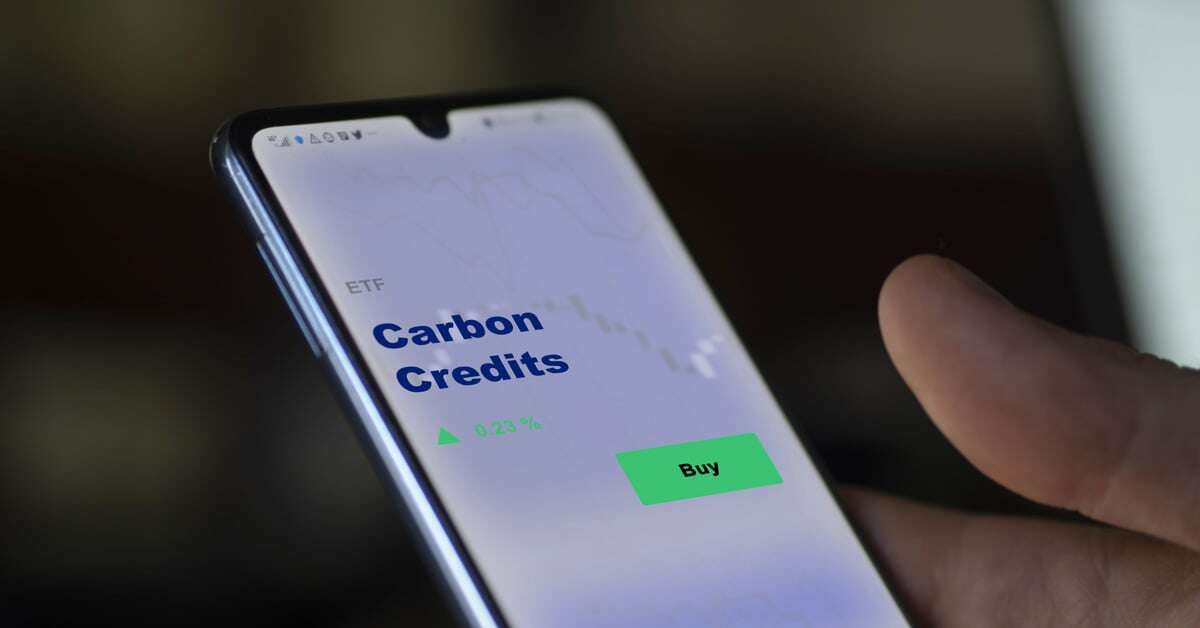4 min read
SBTi Update: Internal Documents Show Carbon Credits Are Ineffective
 Harvey Greer
:
May 15, 2024 12:00:00 AM
Harvey Greer
:
May 15, 2024 12:00:00 AM

ResourceWise continues to follow the developing story around the Science Based Targets initiative (SBTi). The latest news on carbon credits reveals further discord between the organization’s leaders and internal staff. Official SBTi announcements have left serious confusion about methodology until at least the start of 2025.
Recap: Confusion and Upheaval Surrounding Carbon Credits
For readers first coming across this story, here is a brief summary (with links to our previous blog posts with further details) of the situation:
- SBTi, known for its scientific rigor and evidence-based decarbonization planning with its partners, made a controversial announcement from the executive board that could potentially allow energy attribute certificates—or EACs—into its methodology. Carbon credits are included among the EACs in the announcement.
- Carbon credits are a type of EAC that can be used to offset emissions through the purchase of credits to be used for decarbonization efforts elsewhere.
- Internal staff within the SBTi objected to the announcement as a leaked internal letter reiterated that carbon credits are not a part of the current SBTi process and are still undergoing research and analysis.
- The SBTi executive board released a follow-up response saying that nothing is currently changing in the organization’s process. The statement did not directly acknowledge the future of carbon credits, however, leaving further confusion and ambiguity.
The disparity between the organization’s internal and public-facing messaging has left many current and prospective partners understandably frustrated. The turmoil has shaken the foundations of the SBTi, potentially harming its credibility as the de facto resource for businesses to develop an evidence-based decarbonization strategy.
Latest SBTi Announcement Leaves Even More Questions
The most recent update from the SBTi provides a timeline for a "major revision" to the Corporate Net-Zero standard.
The revision reflects ongoing feedback from stakeholders and corporate partners. Some of the proposed changes aim to improve overall validation timelines for emissions targets. Similarly, companies want to improve available solutions surrounding Scope 3 emissions, which are historically difficult to adequately track and account.
The SBTi broke down its plan with four primary objectives for this iteration of revisions:
- Continue to align practices with the latest advancements in climate science. Best practices will connect with the Sixth Assessment report from the Intergovernmental Panel on Climate Change (IPCC) and the UN's High-Level Expert Group of corporate emissions targets.
- Provide improved guidance and recommendations for Scope 3 emissions targets.
- Offer more tools to help companies better report progress. This includes using a scaling approach on how firms can increase their goals as results and decarbonization technology continue to enhance, using tools like carbon credits as progress indicators.
- Improve transparency about how global standards contribute to the SBTi's Corporate Net-Zero Standard.
The SBTi also stated that it will follow due course before any standards are modified. This means a rigorous, evaluative approach using scientific best practices and evidence-based testing.
Unpacking the Latest Announcement
The update incorporates continuous input from stakeholders and corporate partners. The proposed modifications aim to enhance the efficiency of validation timelines for targets.
On one hand, this announcement is par for the course as the SBTi has built in a major review process every two to five years. On the other, the timing for a major review announcement comes at a rather critical moment as the group faces ongoing scrutiny.
But at this point, the announcement leaves several more questions than answers. For instance, very little was stated in relation to how the group would improve Scope 3 reporting and targets.
The lack of clarity leaves many companies in the same place they are right now: unclear about what to expect come 2025.
More Challenges Ahead with SBTi Internal Documents Showing Carbon Credits Don’t Work
Despite the controversy, much of the executive-level commentary has left the option of carbon credits on the table for the SBTi. But recent news suggests that there may be even more issues between that sentiment and the findings of the SBTi research team.
An exclusive article from Reuters has revealed that the preliminary analysis of carbon credits has been completed. The results are what many people expected: carbon credits simply don’t work.
Reuters journalists obtained a "confidential preliminary draft" of the internal report. It states that offsets are "largely ineffective" at their intended goal of reducing carbon emissions. Per the report:
"The document reviewed by Reuters states that ‘higher quality empirical and observational evidence suggests that some or most emission reduction credits are ineffective in delivering emissions reductions.’"
Affirming what many critics have already laid out, these findings will directly undermine much of what the SBTi executive team has recently said about carbon credits.
Note that these conclusions are preliminary and will continue to be analyzed to confirm the details. As the article continues:
"The findings are subject to further analysis and review, including from the Scientific Advisory Group, a panel comprising climate scientists from around the world. If upheld, they would represent a major obstacle to SBTi's board of trustees adopting carbon offsets as part of companies' emission reduction plans."
—Virginia Furness, Reuters
More Uncertainty to Come from SBTi?
An SBTi spokesperson has already been on the record about this issue, stating that it’s false that any findings related to carbon credits have been completed.
It is certainly true that the Reuters report only provides preliminary conclusions on carbon credits. But what this really shows is how deep the disconnect between the SBTi’s “official” messaging and internal staff findings really goes.
We will continue to cover this story as more details emerge.
Get Clarity on Your Decarbonization Strategy and Carbon Accounting
Ongoing ambiguity within the SBTi has left many companies feeling unclear on how to proceed forward with their decarbonization. Fortunately, ResourceWise offers a wealth of solutions designed for your business success.
Our A-to-Z Guide: ESG Reporting Landscape is a comprehensive guide designed to help you quickly learn and understand all the critical elements of environmental, social, and governance guidelines and mandates. The guide can be used both when first getting started on transitioning a company to net-zero carbon and as an ongoing reference to futureproof your infrastructure and logistics.
Additionally, the Carbon Mitigator report gives you access to critical pricing data and intelligence related to low-carbon fuels. The data will help you to identify cost-saving opportunities as you work toward reducing your company emissions across the value chain. Expert insights from our experienced analysts will also keep you informed about the most important news and updates within this fast-moving market sector.
Don’t let confusion and frustration further impact your future success potential. Click the link below to learn more and get a preview of our ESG A-to-Z Guide to see all the ways ResourceWise can help.




![[Video] Molecules to Markets Episode 1: Chemical Markets Begin 2026 in a Supply-Driven, Margin-Sensitive Environment](https://www.resourcewise.com/hubfs/images-and-graphics/blog/chemicals/2026/weekly-video-series-molecules-to-markets/CHEM-Weekly-Video-Series-Molecules-to-Markets-Episode-1.png)
